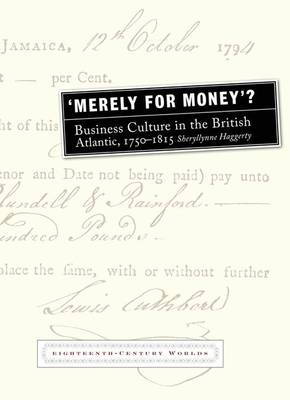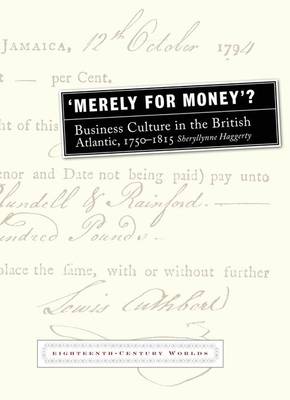
Je cadeautjes zeker op tijd in huis hebben voor de feestdagen? Kom langs in onze winkels en vind het perfecte geschenk!
- Afhalen na 1 uur in een winkel met voorraad
- Gratis thuislevering in België vanaf € 30
- Ruim aanbod met 7 miljoen producten
Je cadeautjes zeker op tijd in huis hebben voor de feestdagen? Kom langs in onze winkels en vind het perfecte geschenk!
- Afhalen na 1 uur in een winkel met voorraad
- Gratis thuislevering in België vanaf € 30
- Ruim aanbod met 7 miljoen producten
Zoeken
Merely for Money?
Business Culture in the British Atlantic, 1750-1815
Sheryllynne (School of History, University of Nottingham) Hagger
€ 27,95
+ 55 punten
Uitvoering
Omschrijving
This book argues that a business culture based on embedded socio-cultural norms was an important element in the success of the British-Atlantic economy 1750-1815.
Specificaties
Betrokkenen
- Auteur(s):
- Uitgeverij:
Inhoud
- Aantal bladzijden:
- 288
- Reeks:
Eigenschappen
- Productcode (EAN):
- 9781781380109
- Verschijningsdatum:
- 27/03/2014
- Uitvoering:
- Paperback
- Afmetingen:
- 232 mm x 187 mm
- Gewicht:
- 462 g

Alleen bij Standaard Boekhandel
+ 55 punten op je klantenkaart van Standaard Boekhandel
Beoordelingen
We publiceren alleen reviews die voldoen aan de voorwaarden voor reviews. Bekijk onze voorwaarden voor reviews.









